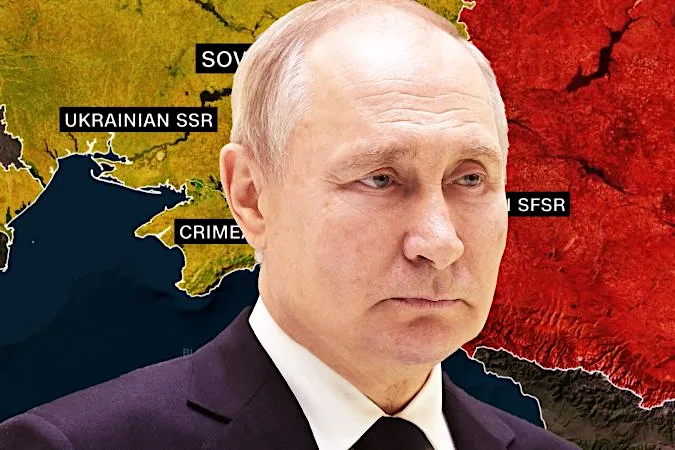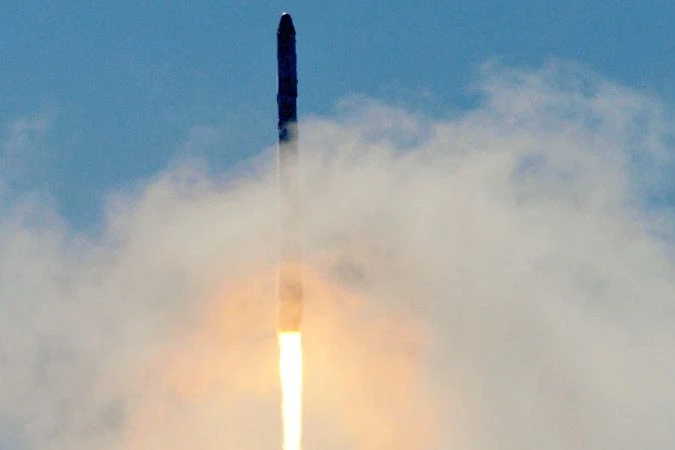Những căn nhà đổ sập, mảnh vỡ vương vãi khắp nơi, trong khi số nạn nhân thiệt mạng vì động đất hôm 6/2 ở ở Thổ Nhĩ Kỳ và Syria đã vượt mốc 5.000 người.
Khói đen từ đám cháy bốc lên ở trung tâm Iskenderun, Thổ Nhĩ Kỳ vào ngày 7/2. Cơ quan Quản lý Thảm họa và Khẩn cấp Thổ Nhĩ Kỳ (AFAD) xác nhận số người chết tại nước này sau động đất là 3.419 người và 20.534 nạn nhân bị thương. Trong khi đó, hãng thông tấn nhà nước Syria SANA cho hay ít nhất 1.602 người đã thiệt mạng tại các khu vực do chính phủ kiểm soát và những nơi do lực lượng chống chính phủ nắm giữ. Ảnh: Serday Ozsoy/Depo Photos. |
 |
Một tòa chung cư bị sập sau động đất ở Kahramanmaras. Ảnh: Reuters/IHX. |
Hàng chục dư chấn mạnh tiếp tục làm rung chuyển miền Nam Thổ Nhĩ Kỳ và miền Bắc Syria hôm 7/2. Tổ chức Y tế Thế giới cảnh báo con số thương vong có thể vượt quá 20.000 người. Trong ảnh, người dân tìm kiếm người sống sót giữa đống đổ nát sau động đất ở Hatay, Thổ Nhĩ Kỳ. Ảnh: Reuters. |
Theo Reuters, AFAD nói rằng gần 8.000 người đã được giải cứu trong trận động đất một ngày trước đó. Cơ quan quản lý thiên tai của Thổ Nhĩ Kỳ cho biết thêm họ nhận được 11.342 báo cáo về các tòa nhà bị sập, trong đó 5.775 trường hợp đã được xác nhận. Ảnh: Reuters. |
Không ảnh cho thấy tòa nhà bị sập sau trận động đất ở Hatay, Thổ Nhĩ Kỳ ngày 7/2. Ảnh: Reuters. |
Khói đen từ đám cháy được nhìn thấy tại cảng Iskenderun vào ngày 7/2. Nhiều quốc gia đã gấp rút điều động viện trợ, nhân sự và thiết bị để giúp đỡ nỗ lực cứu hộ ở các khu vực bị động đất tàn phá tại Thổ Nhĩ Kỳ và Syria. Ảnh: Serday Ozsoy/Depo Photos. |
Người dân trước đống đổ nát sau trận động đất ở Hatay, Thổ Nhĩ Kỳ vào ngày 7/2. Các nhà khoa học chỉ ra cường độ, độ sâu và vị trí, thời điểm góp phần gây ra sự tàn khốc của trận động đất lần này. Bên cạnh đó, sự thiếu chuẩn bị của chính quyền và người dân cũng khiến họ phần nào không kịp trở tay. Ảnh: Reuters. |
 |
Các tòa nhà bị sập tại Iskenderun ở Hatay, phía nam Thổ Nhĩ Kỳ. Ảnh: Serdar Ozsoy/Depo Photos. |
Eyad Kourdi, một nhà sản xuất của CNN ở Gaziantep, kể lại anh “có cảm giác như trận rung lắc sẽ không bao giờ kết thúc”. Khi trận rung lắc dừng lại, Kourdi và bố mẹ anh bước ra khỏi nhà và vẫn mặc bộ đồ ngủ. Video từ hiện trường ở Thổ Nhĩ Kỳ cho thấy nhiều tòa nhà bị sập, khi mọi người co ro trong cái lạnh cóng và chờ đợi sự giúp đỡ. Ảnh: Reuters. |
Người phụ nữ bế con bên đống đổ nát sau trận động đất ở Gaziantep, Thổ Nhĩ Kỳ, ngày 7/2. Ảnh: Reuters. |
Những người phụ nữ đau buồn đứng bên đống nổ nát sau động đất ở Gaziantep, Thổ Nhĩ Kỳ, ngày 7/2. Ảnh: Reuters. |
Zeynep Atesogullari được lực lượng cứu hộ đưa ra khỏi tòa nhà bị hư hại sau trận động đất ở Diyarbakir, Thổ Nhĩ Kỳ, ngày 7/2. Ảnh: Reuters. |
Đội cứu hộ tại một tòa nhà bị sập sau trận động đất ở Antakya, Thổ Nhĩ Kỳ. Ảnh: Reuters. |
Tại thành phố Iskenderun, lực lượng cứu hộ trèo lên đống đổ nát khổng lồ từng là một phần của phòng chăm sóc đặc biệt thuộc một bệnh viện nhà nước tìm kiếm người sống sót. Các nhân viên y tế đang làm mọi cách để ứng phó với những đợt bệnh nhân mới nhập viện. Trong ảnh, Cennet Sucu được giải cứu khỏi đống đổ nát vào ngày 6/2. Ảnh: Reuters. |
Hai em bé ngồi trong xe đẩy mua hàng gần tòa nhà sập trong động đất ở Hatay, Thổ Nhĩ Kỳ, hôm 7/2. Ảnh: Reuters. |
Một phụ nữ khóc bên thi thể người thân tại Hatay. Ảnh: Reuters. |
Trong khi đó, tình hình ở Syria thậm chí còn nghiêm trọng hơn. Trong ảnh, lực lượng cứu hộ tìm kiếm những người sống sót dưới đống đổ nát, sau trận động đất tại thị trấn Jandaris, Syria. Ảnh: Reuters. |
Người phát ngôn của Liên Hợp Quốc cho biết dòng viện trợ quan trọng từ Thổ Nhĩ Kỳ đến tây bắc Syria đã tạm thời bị dừng lại do hư hỏng đường xá và các vấn đề hậu cần khác. “Một số con đường bị hỏng, một số không thể tiếp cận được. Có những vấn đề hậu cần cần được giải quyết”, Madevi Sun-Suon, phát ngôn viên của Văn phòng Điều phối các vấn đề nhân đạo, nói với Reuters. Ảnh: Reuters. |
Nhiều nơi ở Thổ Nhĩ Kỳ, Syria tan hoang như vừa đi qua 'ngày tận thế'
Chứng kiến những người xung quanh bị chôn vùi trong đống đổ nát sau trận động đất hủy diệt, nhiều người dân ở biên giới Thổ Nhĩ Kỳ - Syria cảm thấy như vừa trải qua ngày tận thế.
Thổ Nhĩ Kỳ gặp trận động đất thứ 4
Một trận động đất mạnh 5,6 độ đã tấn công khu vực miền Trung Thổ Nhĩ Kỳ hôm 7/2, vài giờ sau 3 trận động đất kinh hoàng khiến hơn 4.300 người tại Thổ Nhĩ Kỳ và Syria thiệt mạng
Powerful quake leaves thousands dead in Turkey and Syria
By Tara Subramaniam, Sana Noor Haq, Christian Edwards and Ed Upright, CNN
Having already survived a brutal civil war, this earthquake is "a crisis in a crisis" for Syrians
From CNN's Dalya Al Masri and Celine Alkhaldi
For many of the Syrian victims of the devastating earthquake that hit Turkey and Syria on Monday, this is just the latest in a decade-long series of tragedies.
The magnitude 7.8 quake struck in the early hours, killing more than 5,000 people in the two countries and leaving thousands more injured. It was the strongest earthquake recorded in Turkey in 84 years.
In Syria, most of the casualties were in the northwest of the country, predominantly in the cities of Aleppo, Hama, Latakia and Tartus, according to the state news agency, SANA.
This region was already struggling to rebuild vital infrastructure heavily damaged by continual aerial bombardment during the country’s civil war, which the United Nations estimates to have claimed 300,000 lives since 2011.
It’s a “crisis in the crisis,” El-Mostafa Benlamlih, UN resident and humanitarian coordinator in Syria, told CNN’s Christina Macfarlane on Monday.
The infrastructure has been crippled by the situation, the war and so on,” he said.
Those cities are ghost cities… Many people are very scared. They don’t want to go back to their houses. If we can call them houses in these cases. They are ruins sometimes.”
Read the full story:
Cold, wintry weather is making rescue efforts more difficult, and it's about to get worse
From CNN's Christian Edwards
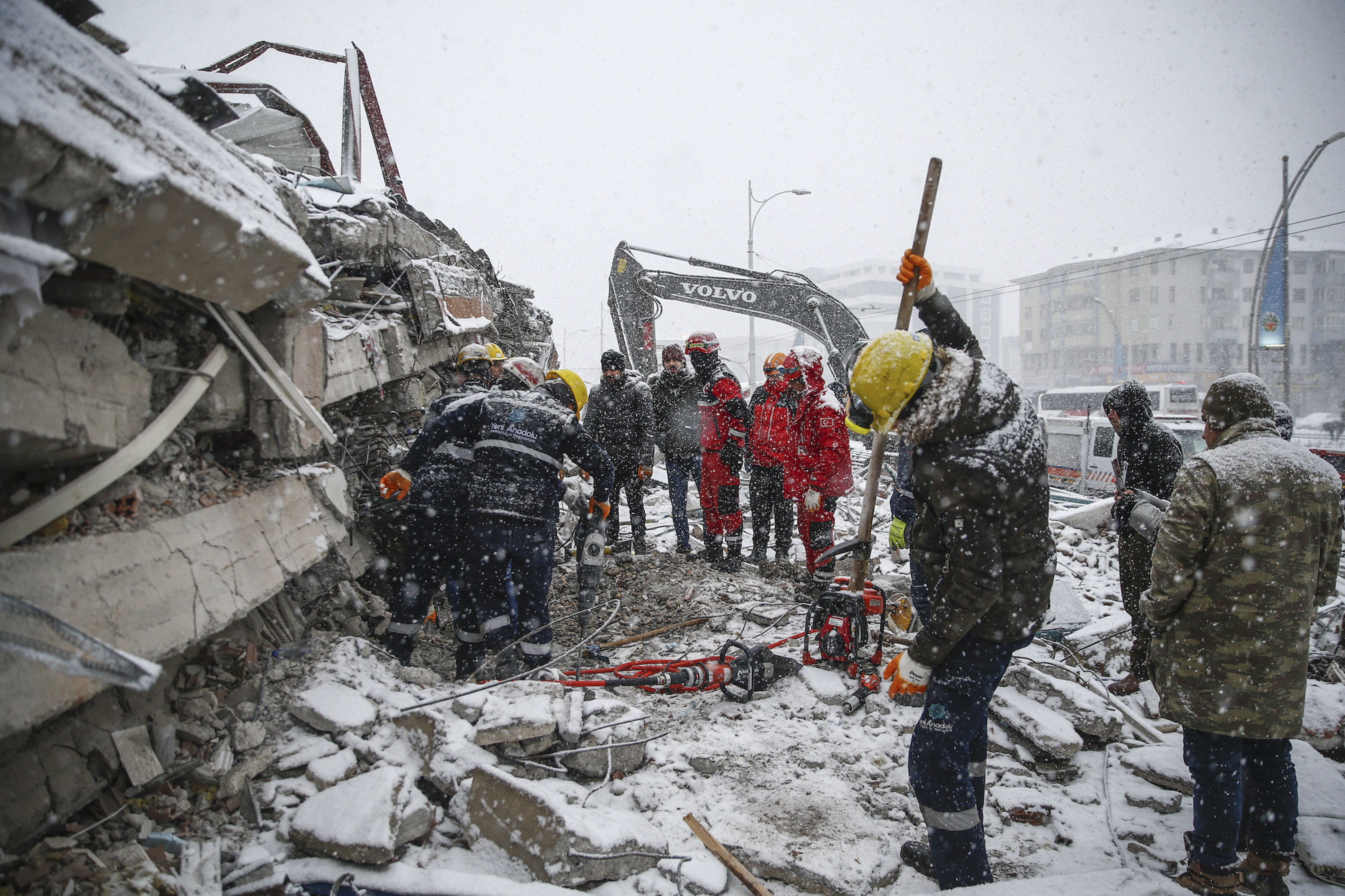
Severe weather conditions are hampering the efforts to rescue those trapped in the rubble in Turkey and Syria, and are endangering the thousands of people whose homes were damaged by Monday's earthquake.
“Thousands of homes have been destroyed, displacing families and exposing them to the elements at a time of year when temperatures regularly drop below freezing and snow and freezing rain are common,” said UNICEF spokesperson James Elder at a news briefing in Geneva on Tuesday.
“Displaced families in northwest Syria, and Syrian refugee families living in Turkey in informal settlements are among the most vulnerable as overnight temperatures continue to dip below zero degrees Celsius (32 degrees Fahrenheit),” he said.
Photos taken in earthquake-hit cities in southeastern Turkey show families huddling around fires to keep warm.
Eyewitnesses in northwest Syria told CNN the conditions there are “terrifying” with the quake leaving “entire families dead” and “survivors sleeping on the streets in the freezing cold.”
Temperatures are already low, and by Wednesday they are expected to plummet several degrees below zero.
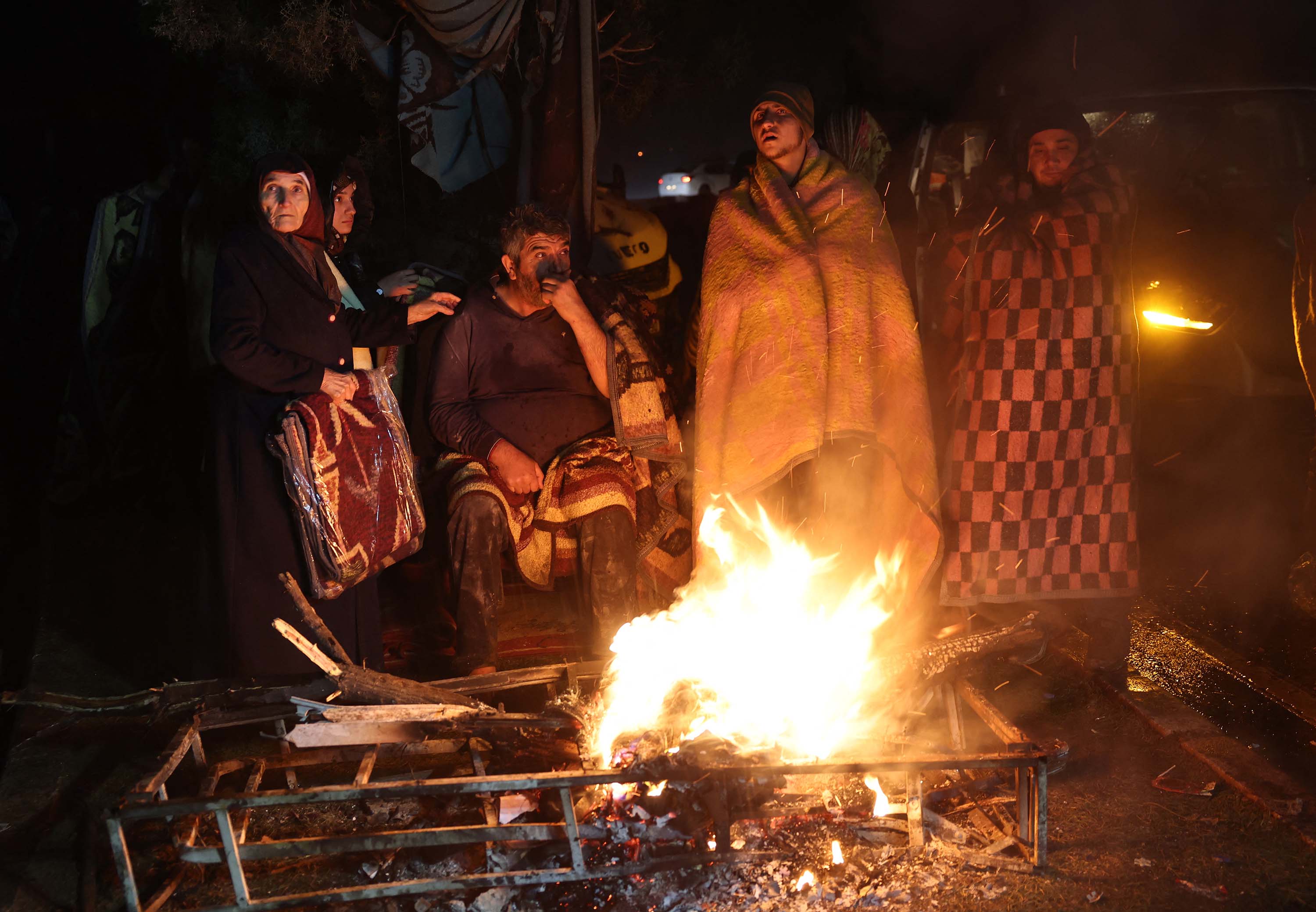
An area of low pressure currently hangs over Turkey and Syria. As that moves off, this will bring “significantly colder air” down from central Turkey, according to CNN’s senior meteorologist Britley Ritz.
It is forecast to be -4 degrees Celsius in Gaziantep and -2 degrees in Aleppo on Wednesday morning. On Thursday, this is forecast to fall further, to -6 degrees in Gaziantep and -4 degrees in Aleppo.
The conditions have already made it challenging for aid teams to reach the affected area, Turkish Health Minister Fahrettin Koca said, adding that helicopters were unable to take off on Monday due to the poor weather.
It is a race to get people out from under the rubble while they are still alive,” said CNN's Nick Paton Walsh, reporting live from Turkey on Tuesday.
Global community pledges help to Turkey and Syria as rescue efforts continue
From CNN staff
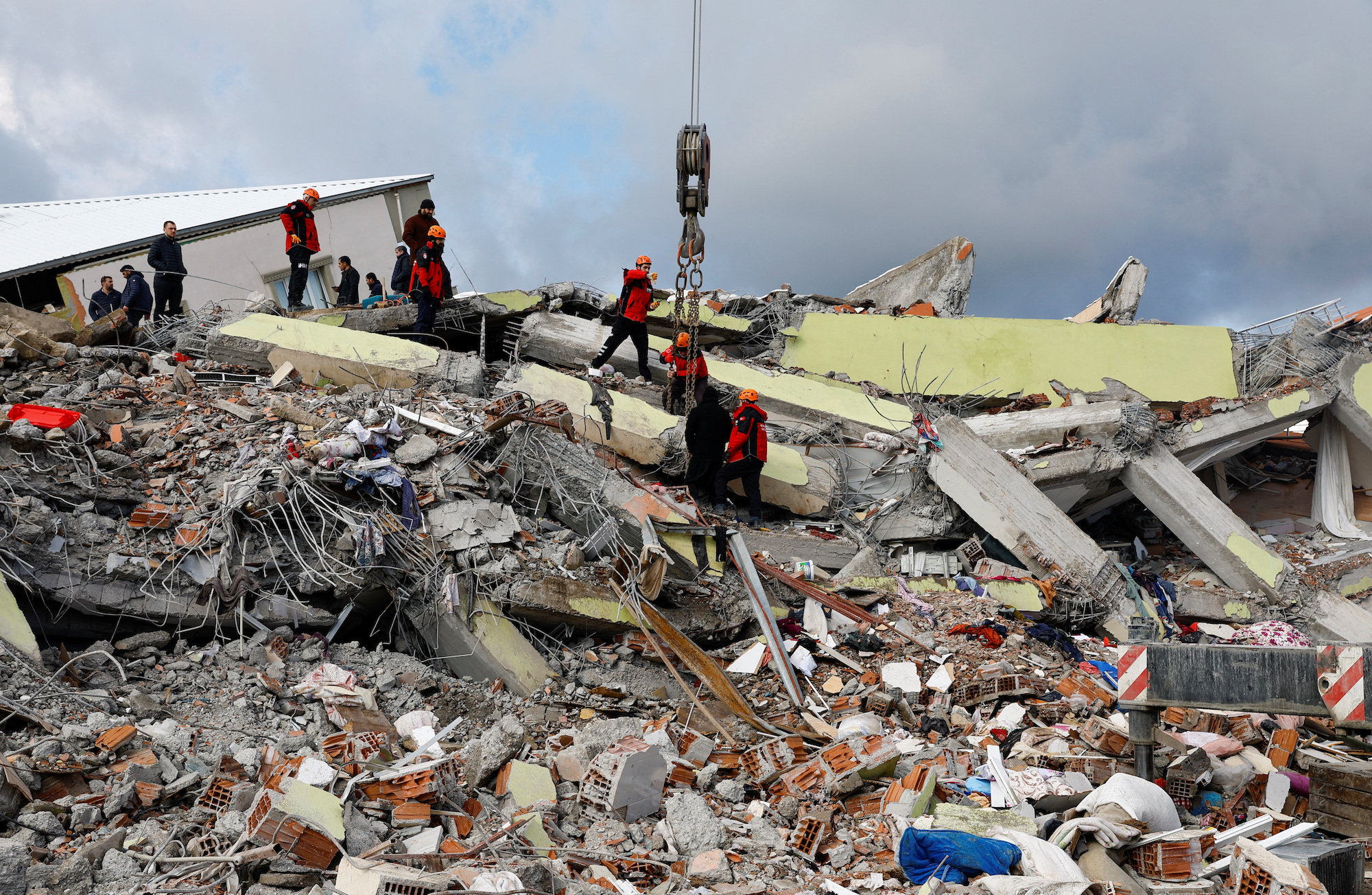
Aid from around the world is heading toward Turkey and Syria, as rescuers locate survivors in the debris of collapsed buildings following the deadly 7.8 magnitude earthquake Monday.
Here's a round-up of some of the latest pledges of support:
- A Hungarian rescue team of 50 people, including five military doctors and two search dogs, landed in Adana in southern Turkey overnight and is now headed for the province of Hatay, according to the Hungarian Ministry of the Interior National Directorate for Disaster Protection.
- South Korea plans to offer humanitarian aid worth US$5 million to Turkey and send about 110 disaster relief workers and military personnel to support its search and rescue work, South Korea’s Foreign Affairs Ministry said Tuesday.
- The Palestinian International Cooperation Agency (PICA) will deploy 70 Palestinian experts to Turkey and Syria later this week, sending two crews comprised of the civil defence, the ministry of health, the Palestinian Red Cross and doctors and engineers.
Ghanaian footballer Christian Atsu found alive following Turkey earthquake
From CNN's Nimi Princewill and Chris Liakos

International footballer Christian Atsu has been rescued from the aftermath of the powerful earthquake which struck southern Turkey on Monday.
“We've received some positive news that Christian Atsu has been successfully rescued from the rubble of the collapsed building and is receiving treatment. Let’s continue to pray for Christian,” the Ghana Football Association tweeted Tuesday.
AFP reported Tuesday that Atsu – who is currently playing for Turkish team Hatayspor – had been found in the southern province of Hatay, citing an interview that Ghana's ambassador to Turkey, Francisca Ashietey-Odunton, gave to radio station based in Accra.
Atsu was not immediately accounted for amid search and rescue efforts after the earthquake.
The player's former club, Premier League side Everton, said it is "relieved" to hear of his rescue.
“We are relieved to hear Christian Atsu has been successfully rescued and is recovering in hospital. Our thoughts continue to be with everyone affected by the earthquakes in Turkey and Syria," Everton said on its official Facebook page.
WHO says up to 23 million people could be affected by earthquake
From CNN's Alex Stambaugh

The World Health Organization (WHO) said that nearly 23 million people could be impacted by the powerful earthquake that struck southern Turkey early Monday, which has left over 5,000 people dead and thousands more injured.
"Event overview maps show that potentially 23 million people are exposed, including around 5 million vulnerable populations, including more than 350,000 older people, 1.4 million children," WHO senior emergencies officer Adelheid Marschang told the UN health agency's executive board meeting in Geneva.
The head of the WHO expressed his concern at the situation, calling it a "race against time."
"We're especially concerned about areas where we do not yet have information," Dr. Tedros Adhanom Ghebreyesus said. "Damage mapping is one way to understand where we need to focus our attention."
Footage of rescue efforts across both countries emerged Monday, with family members mourning the loss of loved ones while others celebrated as survivors were found in the rubble of fallen buildings.
Head of Syria’s Red Crescent ready to send aid to rebel-held areas
From CNN’s Mostafa Salem
The head of Syrian Arab Red Crescent (SARC) said that the organization is ready to “immediately” send aid convoys to rebel-held areas, including Idlib, through the United Nations, as international leaders struggle to send aid to quake-stricken parts of northwest Syria amid ongoing conflict and political crisis.
SARC describes itself as an independent organization. The group operates primarily across government-held territories and is based in the capital Damascus.
“We are ready to send an aid convoy through the cross-line into Idlib if they open the roads for us,” SARC President Khaled Hboubati told a news conference.
“The death toll will increase … until right now there are buildings collapsing in Aleppo and Latakia,” Hboubati said.
Hboubati added that the organization does not have enough capabilities to fully deal with the devastation.
“We were in every location after the earthquake, but we do not have the equipment, we do not have heavy machinery,” Hboubati said.
The official called for the lifting of international economic sanctions which are affecting the aid operation.
The powerful earthquake Monday has left over 5,000 people dead and injured thousands more people across Turkey and Syria.
Dr. Bachir Tajaldin, Turkey country director at the Syrian American Medical Society (SAMS), told CNN earlier that sending relief to Syria will be challenging because there "is no central government to take care of the multi-sectorial response."
Quake death toll surpasses 5,000 in Turkey and Syria
From CNN's Mostafa Salem and Isil Sariyuce
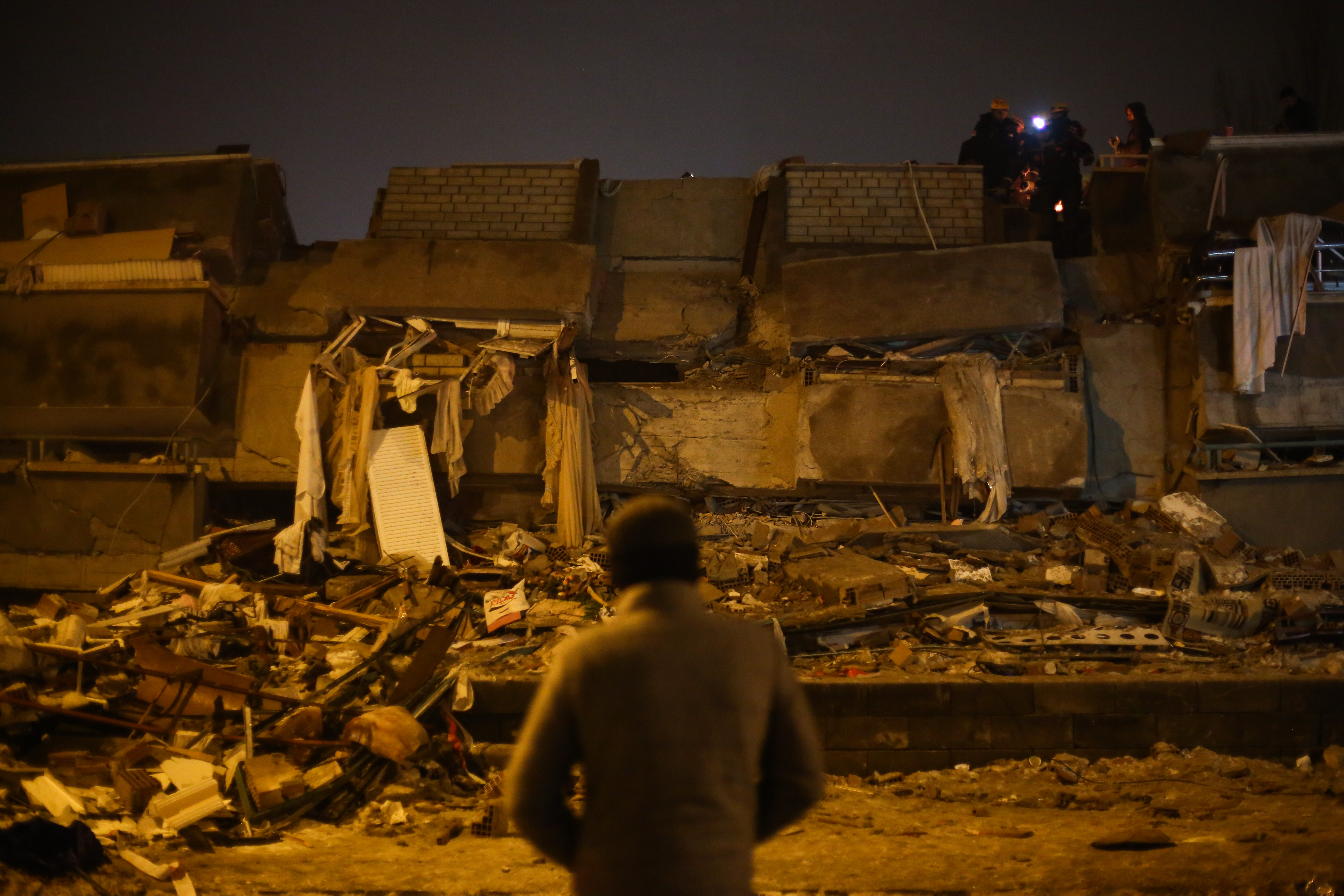
At least 5,034 deaths have now been confirmed in Turkey and Syria after a powerful magnitude 7.8 earthquake rocked the region early on Monday.
Turkey's death toll rose to at least 3,432, Turkey's Disaster Coordination Center (AKOM) said Tuesday.
The deaths were reported in the provinces of Kahramanmaraş, Gaziantep, Şanlıurfa, Diyarbakır, Adana, Adıyaman, Osmaniye, Hatay, Kilis and Malatya, AKOM said.
At least 21,103 people have been reported injured, AKOM added. Almost 26,000 search and rescue personnel have been involved in operations, along with 360 vehicles and 3,361 pieces of equipment, including more than 600 cranes, it said.
Additionally, 2,769 personnel from 65 countries have been deployed to the disaster area, according to AKOM.
In Syria, the death toll has risen to at 1,602 across government-controlled areas and opposition-controlled areas, officials said.
At least 3,649 people have been reported injured across the country, according to officials.
This post has been updated with the latest figures.
Relief operations will be more challenging in Syria than in Turkey, expert says
From CNN's Christian Edwards

Dr. Bachir Tajaldin, Turkey country director at the Syrian American Medical Society (SAMS), told CNN's This Morning about the difficulty of providing aid to Syria.
“The situation in Turkey is coordinated through a very well developed government. They have infrastructure, they have rescue teams,” Tajaldin said.
“In northern Syria, most of the services are provided by NGOs (non-governmental organizations) and through humanitarian aid. There is no central government to take care of the multi-sectoral response,” he said.
SAMS is one of the many organizations providing relief in the region. This has been made harder after “the previous 12 years of crisis in Syria,” Tajaldin said. Attacks on civilian infrastructure and the absence of investment left northwestern Syria particularly vulnerable to this disaster.
“Yesterday we evacuated two maternity hospitals because of the physical impact of the earthquake on the infrastructure,” Tajaldin added.
China is sending aid to earthquake-stricken region
From CNN's Mengchen Zhang in Beijing
China said it will do its best to provide assistance to Turkey and Syria after a devastating earthquake struck the region Monday, killing more than 5,000 people and injuring over 24,000 across both countries.
The first batch of aid to Turkey will be 40 million Chinese yuan ($5.9 million), while also dispatching rescue and medical teams, and emergency supplies, the spokesperson for China’s Ministry of Foreign Affairs (MOFA) Mao Ning said Tuesday.
Beijing is coordinating with Syria for emergency supplies and accelerating the implementation of ongoing food aid projects, Mao added.
So far no Chinese citizens have been reported killed in the earthquake, China's MOFA also confirmed.
Chinese President Xi Jinping sent condolences to his Turkish and Syrian counterparts, Recep Tayyip Erdogan and Bashar al-Assad, on Monday, according to state media Xinhua, as rescuers search for survivors in the rubble of flattened buildings.
Israeli aid groups chartering flight to Turkey with rescue specialists and equipment
From CNN's Hadas Gold in Jerusalem
Two Israeli aid groups have chartered a flight to Gaziantep on Tuesday to bring personnel and equipment to victims of the earthquake in Turkey.
United Hatzalah, an Israeli volunteer emergency medical service, chartered the flight on El Al Airlines alongside aid group IsraAid, United Hatzalah spokesperson Raphael Poch said.
Ten search and rescue specialists, a water expert, and more than a dozen doctors, paramedics and mental health specialists will be on board the flight, according to Poch and IsraAid spokesperson Shachar May.
The groups said they will also be bringing “several tons” of humanitarian aid in the form of bedding, tents, warm clothing, food, water filters, hygiene kits, and resilience kits.
White Helmets say death toll expected to rise significantly in rebel-held northwest Syria
From CNN's Celine Alkhaldi
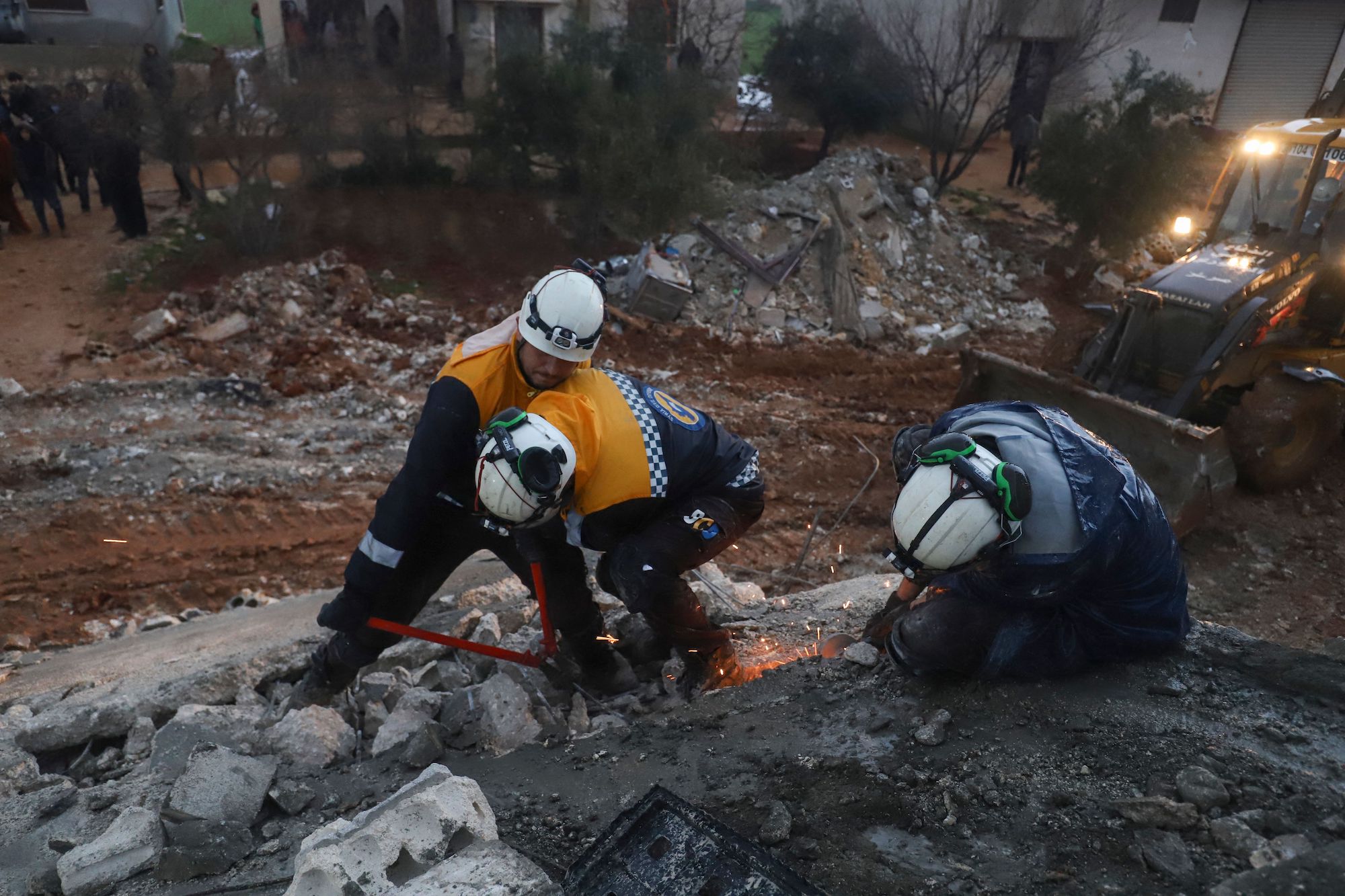
Hundreds of families remain trapped under the rubble of collapsed buildings in northwest Syria following Monday's powerful earthquake, according to the White Helmets, officially known as the Syria Civil Defense.
More than 790 victims have been confirmed dead in rebel-held parts of northwest Syria, and more than 2,200 injured, the White Helmets said on Twitter.
However, “the numbers are expected to rise significantly because hundreds of families are still under the rubble,” the group said.
More than 210 buildings were destroyed by the quake in northwest Syria, the group added.
Some context: Syria, a country already suffering the effects of civil war, is facing widespread devastation from the quake. More than 1,500 fatalities and 3,600 wounded have been reported across the country, according to officials.
Some 4 million people in northern Syria were already displaced and relying on humanitarian support as a result of war, a UNICEF spokesman said earlier. Among major concerns now are a lack of access to shelter and safe drinking water amid freezing weather conditions and the risk of diseases such as cholera spreading.
Pakistan's Prime Minister will travel to Turkey to offer support
From CNN’s Sophia Saifi in Islamabad
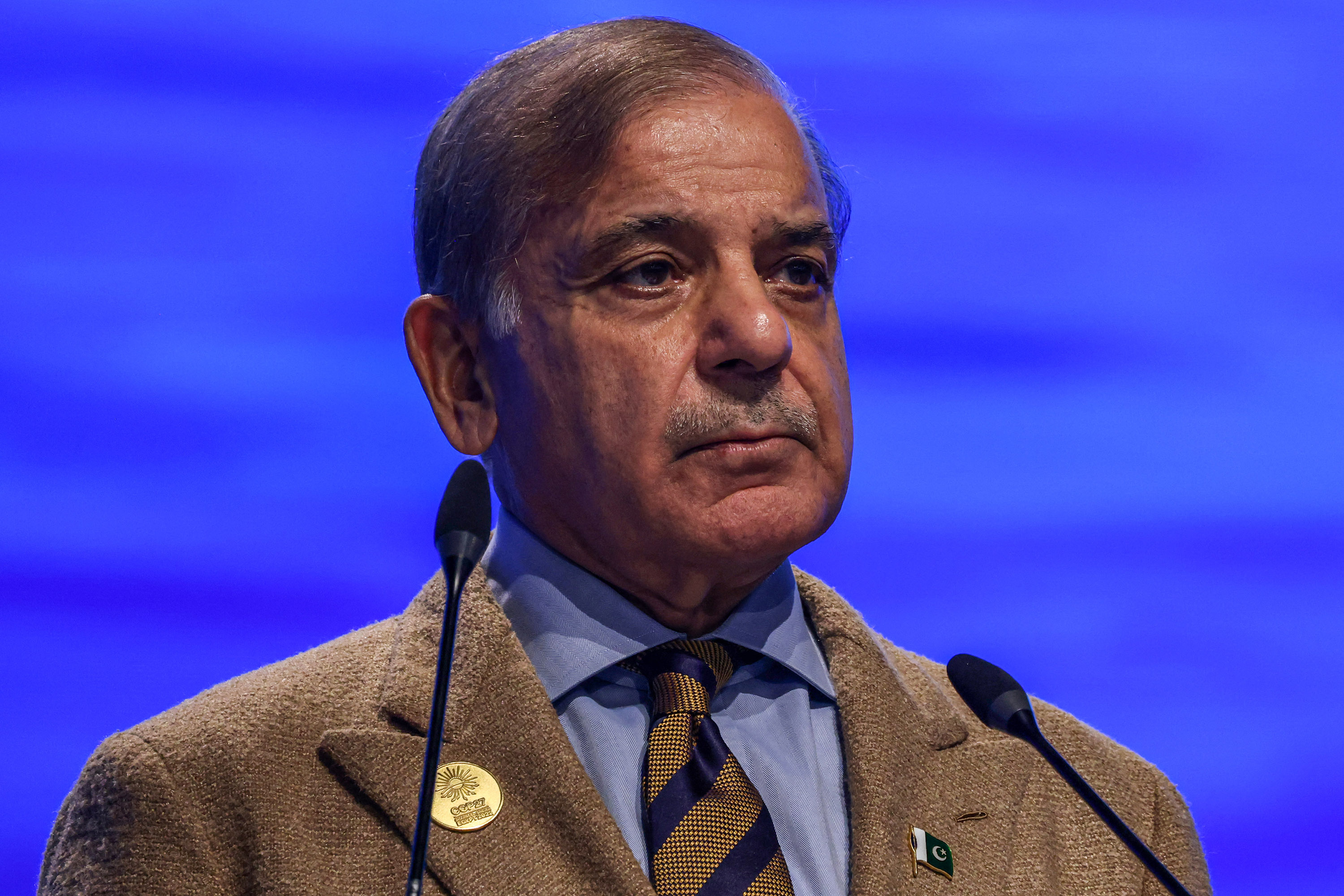
Pakistan’s Prime Minister Shehbaz Sharif will travel to Ankara on Wednesday to offer his support following the devastating earthquake.
In a statement Tuesday, Information Minister Marriyum Aurangzeb said Sharif would "express condolences and solidarity with President [Recep Tayyip] Erdogan and the people of Turkey over the loss of precious lives and destruction caused by yesterday's deadly earthquake."
Pakistan has also deployed two search and rescue teams to Turkey.
Help for Turkey and Syria is arriving from across the world following the deadly quake
From CNN's Rhea Mogul
The international community has been quick to offer assistance to Turkey and Syria as the full scale of the disaster becomes clear.
Here's a round-up of some of the latest pledges of support:
- On Tuesday morning, planes carrying aid from Iraq and Iran, including food, medicines and blankets, arrived at Damascus International Airport in Syria, Syrian state media SANA reported.
- Japan announced it would send the country’s Disaster Relief Rescue team to Turkey, and on Monday night, the first of two disaster relief teams left India for Turkey with dog squads and medical supplies. Pakistan has also dispatched two search and rescue teams to the ravaged country, while Australia and New Zealand committed funds for humanitarian assistance.
- The European Union activated its crisis response mechanism, while the United States said it would send two search and rescue units to Turkey. Palestinian civil defense and medical teams will also be sent to Turkey and Syria to help in rescue operations.
- Meanwhile, 10 units of the Russian army with more than 300 soldiers are clearing debris and helping in search and rescue operations in Syria, Russia’s Defense Ministry said. Russia is the strongest foreign power operating in Syria, and Russian President Vladimir Putin has long allied with Syrian President Bashar al-Assad.
- The United Nations Office for the Coordination of Humanitarian Affairs (UNOCHA) said emergency response teams from the United Nations Disaster Assessment and Coordination (UNDAC), the International Search and Rescue Advisory Group (INSARAG) and WHO’s Emergency Medical Teams (EMT) are being mobilized to Turkey to assist in the humanitarian response.
In Syria, millions of displaced people face harsh winter as quake destruction raises risk of disease
From CNN's Rhea Mogul
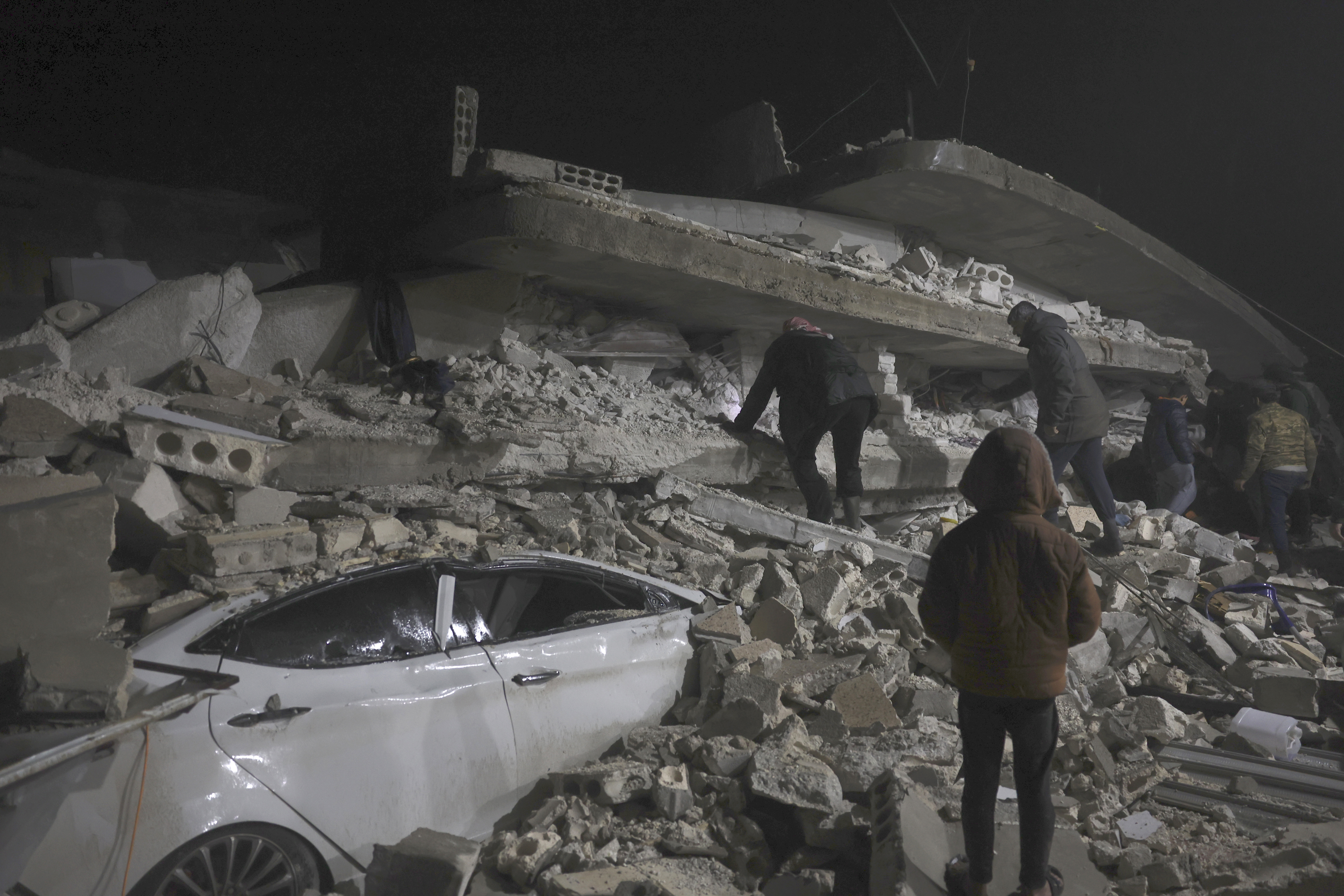
More than 4,300 people were killed either side of the Turkey-Syria border when the 7.8-magnitude quake hit southern Turkey in the early hours of Monday. But with thousands more injured and an unknown number missing, it’s feared the final toll could be much higher.
In Syria, a country already suffering the effects of civil war, the devastation following Monday's earthquake is widespread.
- Death toll: At least 1,136 people were killed in the quake, Syrian state news agencies reported, with fears more remain buried within rubble. Much of northwestern Syria, which borders Turkey, is controlled by rebels, and aid agencies warn of an acute humanitarian crisis that is likely to be felt for months to come.
- Equipment shortfall: The UN's humanitarian coordinator in Syria, El-Mostafa Benlamlih, told CNN the search and rescue mission was being hampered by a lack of heavy equipment and machinery. He said the UN’s supply of stock has been distributed and more medicine and medical equipment is needed, and especially fresh water or tools to repair damaged water tanks.
- Vulnerable population: Around 4 million people in northern Syria were already displaced and relying on humanitarian support as a result of war, according to James Elder, spokesman for UNICEF. “Everyone is overstretched in that part of the world … there is an enormous amount do,” he said. “People have fled their homes often standing around in bitterly cold conditions really without access to safe water. So water is key. Blankets, food, psychological support.”
- Disease risk: Hospitals in the country are overwhelmed as victims seek help, with some facilities damaged by the quake. And there is particular concern about the spread of illness, especially among children, who were already living in extreme hardship. This winter had been particularly tough due to the freezing conditions and a cholera outbreak, Elder said.
- Plea for international aid: A volunteer with the “White Helmets” group, officially known as the Syria Civil Defense, said the organization does not have enough help to handle this disaster. “Our teams are working around the clock to help to save the injured people. But our capabilities, our powers are not enough to handle this disaster,” Ismail Alabdullah told CNN. “This disaster needs international efforts to handle.”
In Turkey, rescue workers are racing to find survivors following the deadly quake
From CNN's Rhea Mogul
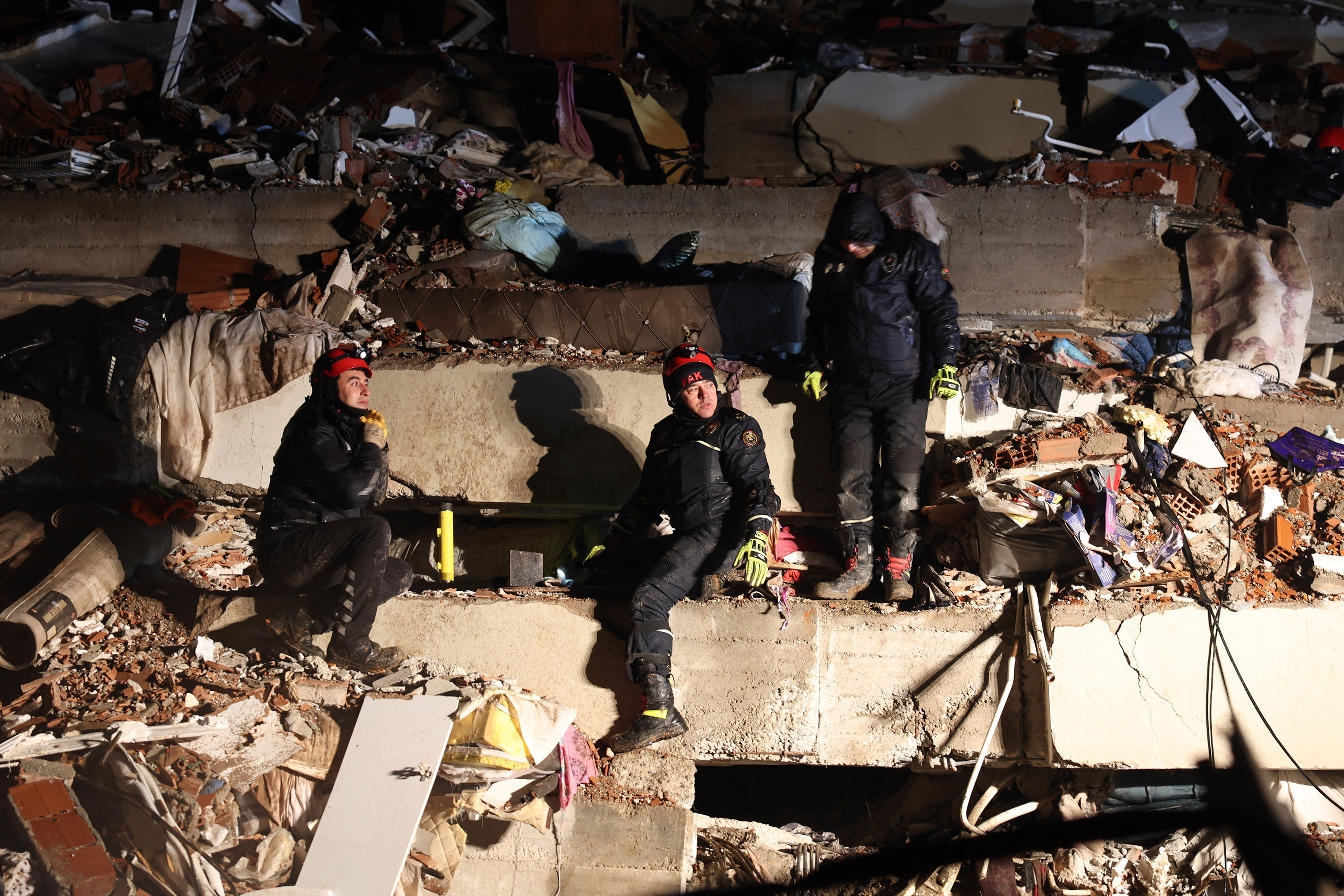
A massive international rescue effort is underway in Turkey and Syria to reach victims trapped within rubble as survivors endured their first night in freezing conditions beside the crumbled remains of thousands of homes and buildings.
The death toll continues to climb more than 24 hours after the quake as search terms navigate blocked roads and damaged infrastructure to reach the affected area, which has been rattled by at least 100 aftershocks.
- In Turkey: At least 2,921 people have died and several thousand are injured, the head of the country’s disaster services, Yunus Sezer told a news conference Monday night.
- Plunging temperatures: The weather and the scale of the disaster were making it challenging for aid teams to reach the affected area, Turkish Health Minister Fahrettin Koca said, adding that helicopters were unable to take off on Monday due to the poor weather. Heavy snowstorms have recently hit parts of Syria and Turkey, according to CNN meteorologist Haley Brink, and by Wednesday already cold temperatures are expected to plummet several degrees below zero.
- Survivors sheltering: Photos taken in earthquake-hit cities in southeastern Turkey show families huddling around fires to keep warm. Some sought shelter in buses, sports centers, mosques and underneath temporary tarpaulin tents — structures sturdy enough to withstand further aftershocks or flimsy enough not to cause severe injury should they collapse.
- Buildings destroyed: At least 5,606 structures crumbled during the quake and in the hours after, Turkey’s disaster agency (AFAD) said. Iskenderun State Hospital in the city of the same name was among them, Koca, the health minister said. “We are trying to save the medical workers and patients there,” he added. “These sorts of disasters can only be overcome with solidarity.” By late Monday, at least 300,000 blankets, 24,712 beds, and 19,722 tents had been sent to the quake-affected areas, AFAD said.
Monday's earthquake is the most powerful recorded in Turkey since 1939, UN says
From CNN’s Sahar Akbarzai
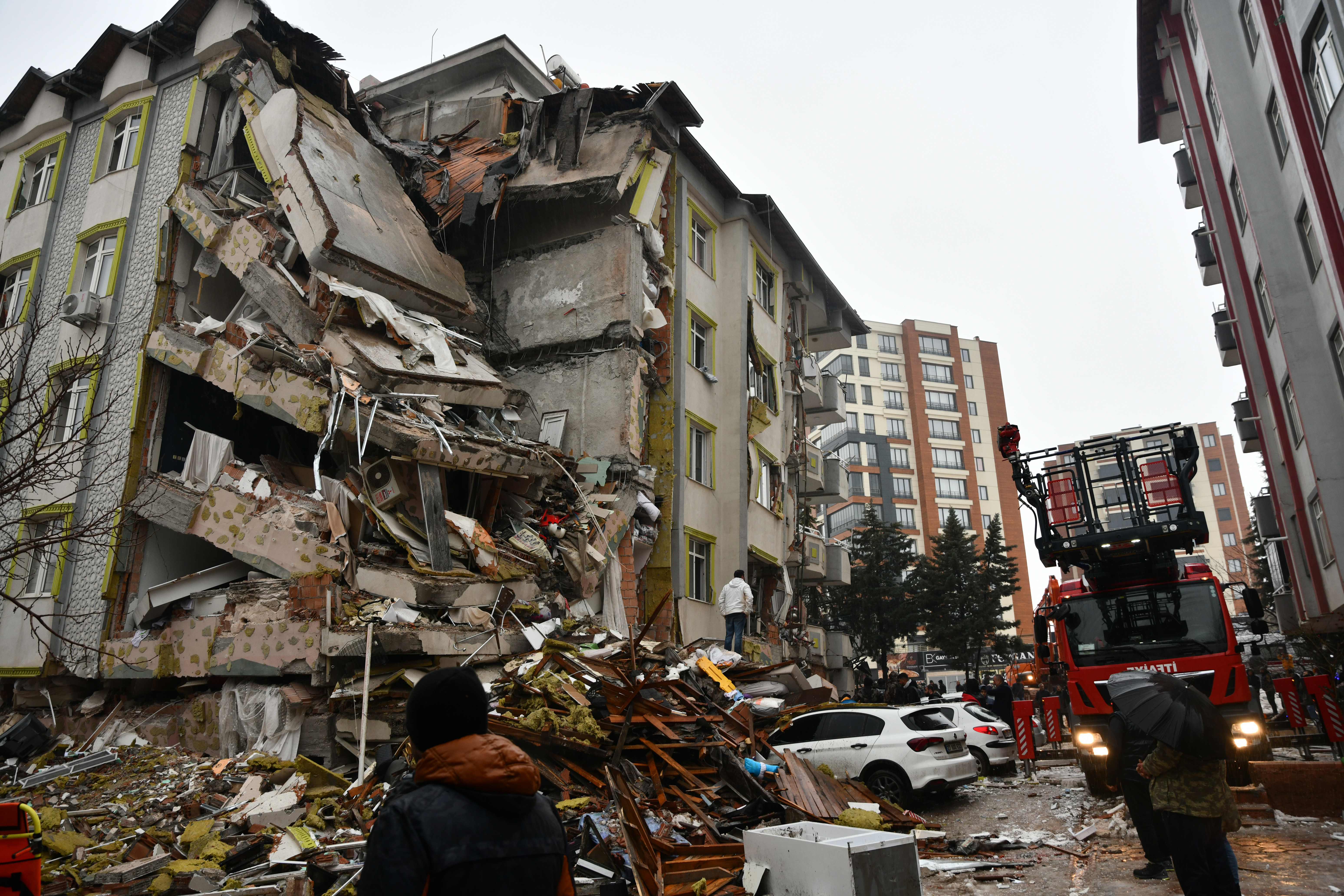
The United Nations said the 7.8 magnitude earthquake that struck southern Turkey early Monday was the county's most powerful quake in more than 80 years.
“This is Türkiye's most powerful earthquake recorded since 1939," a situational report released Monday by the UN Office for the Coordination of Humanitarian Affairs (UNOCHA) said.
UNOCHA said emergency response teams from the United Nations Disaster Assessment and Coordination (UNDAC), the International Search and Rescue Advisory Group (INSARAG) and World Health Organization's Emergency Medical Teams (EMT) are being mobilized to Turkey to assist in the humanitarian response.
"The UN and partners are closely monitoring the situation on the ground and are looking to mobilize emergency funds in the region," the report said.
Boy, 14, rescued from rubble in Turkey a day after deadly earthquake
From CNN's Beroj Siya
A 14-year-old boy was rescued from the rubble in the city of Kahramanmaras more than 24 hours after a powerful earthquake struck the region, according to CNN affiliate CNN Turk.
His rescue, broadcasted live on CNN Turk, showed emergency teams carrying the boy on a stretcher through crowds to an ambulance.
"Finally! He has been rescued," a CNN Turk reporter said from the scene, calling it a "miracle."
The boy has been transferred to hospital, the reporter said. His condition is not known.
There have been 100 aftershocks so far in Turkey, USGS says
From CNN's Taylor Ward
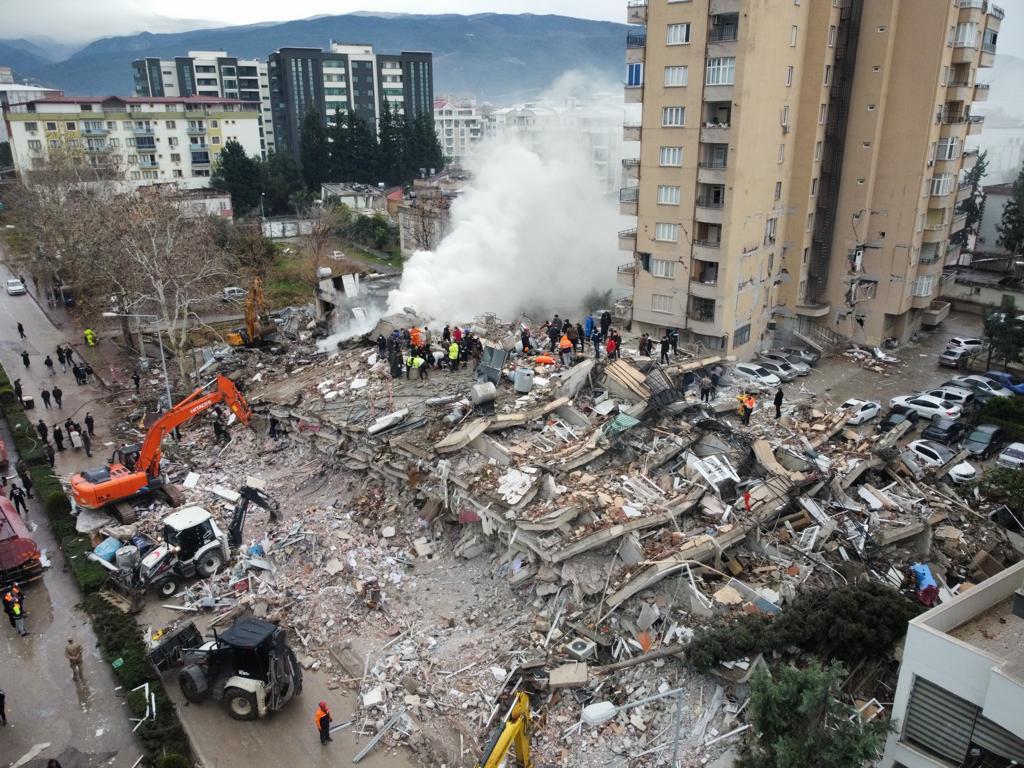
At least 100 aftershocks measuring 4.0 or greater have occurred since the 7.8 magnitude earthquake struck southern Turkey on Monday morning local time, according to the United States Geological Survey.
As the time from the original earthquake extends, the frequency and magnitude of the aftershocks tend to decrease. However, 5.0 to 6.0-plus aftershocks are still likely to occur and bring a risk of additional damage to structures that are compromised from the original earthquake. This brings a continued threat to rescue teams and survivors.
The aftershocks stretch for more than 300 kilometers (186 miles) along the fault zone that ruptured in southern Turkey, oriented from southwest to northeast and stretching from the border with Syria up through the province of Malatya.
Aid planes from Iraq and Iran land in Syria
From CNN's Ruba Alhenawi and Mitchell McCluskey
Planes carrying aid shipments from Iraq and Iran arrived at Damascus International Airport after a magnitude 7.8 earthquake devastated Turkey and Syria, Syrian state media SANA reported.
The Iranian aid arrived on Monday and the Iraqi aid was delivered early Tuesday morning local time, SANA reported.
Mahdi Ghanem, an official at the Iraqi Ministry of Foreign Affairs, told SANA that each plane carried about 70 tons of food, medical supplies, blankets and necessary supplies.
On Monday, Iraq's Prime Minister Mohammed S. Al-Sudani announced they would send a shipment of emergency medical supplies, first aid and shelter supplies as well as medicine and fuel.
Iran's Foreign Minister Hossein Amir-Abdollahian told Syrian Foreign Minister Faisal Mekdad he would dispatch humanitarian aid to the area, Iranian state media IRNA reported.
Death toll rises to more than 4,300 after earthquake rocks Turkey and Syria
From CNN's From Gul Tuysuz in Ankara, Turkey
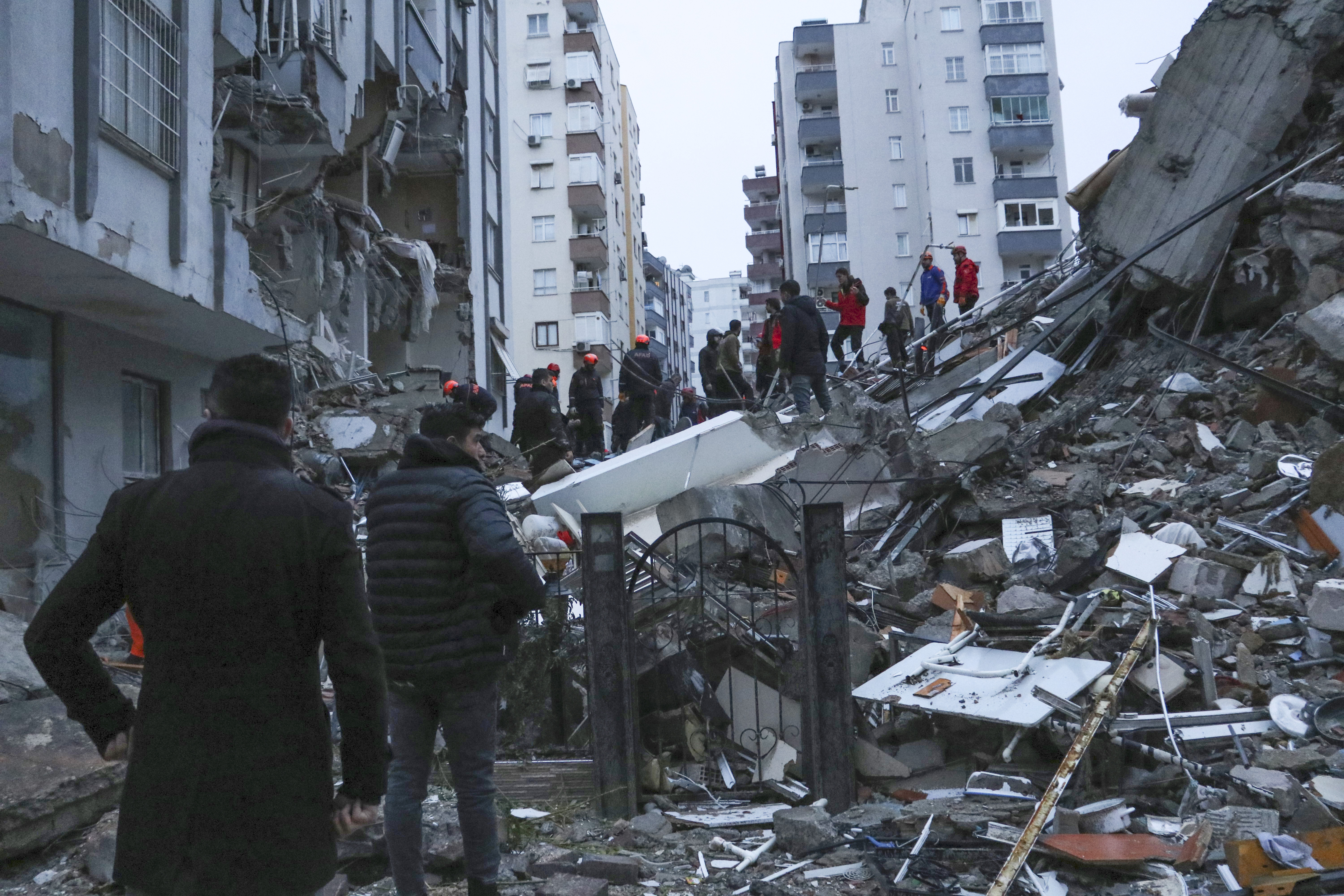
At least 4,372 deaths have been confirmed after a powerful magnitude 7.8 earthquake rocked Turkey and Syria early Monday.
Turkey's toll rose to 2,921 as of Tuesday morning, according to Yunus Sezer, Turkey’s head of disaster services.
A total of 15,834 injuries have been reported, Sezer said in a news conference in Ankara.
Sezer said he would provide a more comprehensive update at 6 a.m. local time (10 p.m. ET).
In Syria, 1,451 deaths and 3,531 injuries have been reported by officials.
Weather and scale of disaster make it hard to reach quake-affected regions, Turkish health minister says
From CNN’s Sahar Akbarzai
Poor weather and the scale of the disaster are creating challenges for aid teams, according to Turkish Health Minister Fahrettin Koca.
“The weather conditions and the scale of the disaster make it hard for our teams to reach the region,” Koca said at a news conference, adding “our helicopters could not take off today due to weather conditions.”
Parts of southern Turkey and northern Syria have been hit by heavy snowstorms in recent days, with further sub-zero temperatures forecast.
All state institutions have been mobilized in the recovery effort, including the national police, municipal workers, the Disaster and Emergency Management Agency and the Gendarmerie, an armed general law enforcement organization part of the Interior Ministry.
At least 2,256 emergency health personnel workers have so far reached earthquake-affected provinces, the health minister said.
At least 602 ambulances and two ambulance planes have been dispatched from neighboring cities. Also, 187 teams part of Turkey’s National Medical Rescue Team (UMKE) have also been dispatched.
“We have moved teams from surrounding provinces to the region,” the minister said.
Iskenderun State Hospital, a hospital in the city of Iskenderun, collapsed due to the earthquake.
“We are trying to save the medical workers and patients there,” Koca said. “These sorts of disasters can only be overcome with solidarity.”
Thousands of homes likely destroyed following earthquake in Syria and Turkey, UNICEF says
From CNN’s Sahar Akbarzai and Ghazi Balkiz
UNICEF says thousands of homes have likely been destroyed following an earthquake in Turkey and Syria on Monday.
"Thousands of homes are likely to have been destroyed, displacing families and exposing them to the elements at a time of year when temperatures regularly drop below freezing and snow and freezing rain are common. Heavy snowstorms have also recently hit parts of Syria and Türkiye, with further sub-zero temperatures forecasted," UNICEF said in a statement.
At least 3,830 deaths have been confirmed after a powerful magnitude 7.8 earthquake rocked Turkey and Syria early Monday. In Turkey alone, at least 5,606 buildings collapsed, according to Turkey's Disaster and Emergency Management Agency. There are reports of similar devastation in northern Syria.
It is also likely that hospitals and schools, along with other medical and education facilities, were "damaged or destroyed," UNICEF said.
UNICEF is working with the Turkish government and Turkey's Disaster and Emergency Management on the "emerging needs linked to the wider humanitarian response," the statement said, adding that the group is also preparing to support efforts in Syria.
"Children in Syria continue to face one of the most complex humanitarian situations in the world. A worsening economic crisis, continued localized hostilities after more than a decade of grinding conflict, mass displacement and devastated public infrastructure have left two-thirds of the population in need of assistance... waterborne diseases pose another deadly threat to children and families affected," UNICEF said.
Here's what to know about the deadly earthquake that caused devastation in Turkey and Syria
From CNN staff
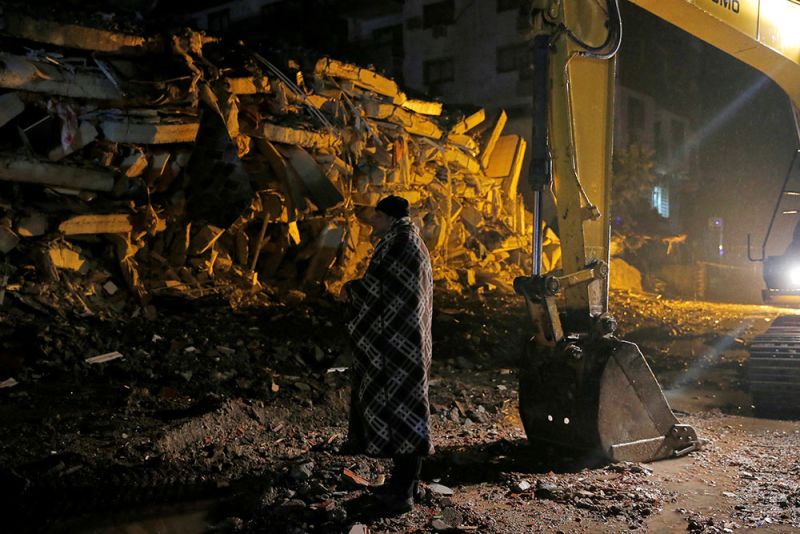
More than 4,300 people have died and thousands more were injured after a massive earthquake rocked Turkey and Syria on Monday morning.
The magnitude 7.8 quake was one of the strongest to strike the area in more than a century. Amid severe aftershocks, Turkey’s Disaster and Emergency Management Agency (AFAD) called for international help.
Here's what to know:
- The latest: More than 4,300 people have been killed and more than 19,000 injured in Turkey and Syria, according to officials. Following the initial quake, the US Geological Survey recorded at least 100 aftershocks, including a major one at 7.5 magnitude.
- Damage: At least 5,606 buildings collapsed in Turkey during and after the quake, according to Turkey's Disaster and Emergency Management Agency. There are reports of similar devastation in northern Syria. UN's Humanitarian Coordinator in Syria, El-Mostafa Benlamlih, told CNN many buildings collapsed — and more could still fall.

- First-hand accounts: Eyewitnesses described "terrifying" conditions in northwest Syria. The quake left “entire families dead” and “survivors sleeping on the streets in the freezing cold,” they said. CNN journalist Eyad Kourdi, who was in Turkey, described the power of the earthquake as "biblical," saying, "The force felt like somebody trying to knock me over."
- Challenges in Syria: More than 4 million people rely on humanitarian assistance in the region where the quake struck, according to the UN Office for the Coordination of Humanitarian Affairs. The majority are women and children. Along with the devastation from the earthquake, Syrian communities are battling an ongoing cholera outbreak amid a harsh winter with heavy rain and snow over the weekend, Search and rescue efforts have been hampered by a "lack of heavy equipment and machinery to clear the rubble," according to the UN's Humanitarian Coordinator in Syria, El-Mostafa Benlamlih.
- International support: The European Union activated its crisis response mechanism in order to provide faster support to Turkey and Syria. The United States will send two search and rescue units to Turkey, ambassador Jeff Flake said. Palestinian civil defense and medical teams will be sent to Turkey and Syria to help in rescue operations, Palestinian Authority's Prime Minister Muhammad Shtayyeh said. Iraq has also said it will send aid to earthquake victims, according to the country's prime minister.
- Russian assistance: Ten units of the Russian army with a total of more than 300 soldiers are involved in clearing debris and helping in search and rescue operations in Syria. Russia is the strongest foreign power operating in Syria, and Putin has long allied himself with Syrian President Bashar al-Assad, throwing the full weight of the Russian military behind the Syrian Army.
- Archeological sites damaged: Several archeological sites in Syria were damaged by the quake, experts said. In Turkey, the tremor badly damaged Gaziantep Castle, a historic site and tourist attraction.
- How you can help: The International Federation of Red Cross and Red Crescent Societies (IFRC) says it is “launching immediate cash assistance” from its Disaster Response Emergency Fund to help relief efforts in both Turkey and Syria. CNN’s Impact Your World has gathered ways to help victims. You can read about that here.
2 US search and rescue units heading to Turkey, ambassador says
From CNN's Kylie Atwood
Two search and rescue units from the United States will be sent to Turkey to assist with the aftermath of the earthquake, US Ambassador to Turkey Jeff Flake told CNN on Monday.
“There will be two teams from the US. One from Fairfax County and another from Los Angeles — what they call these heavy units, each with I think 70 personnel with search dogs as well as paramedics,” Flake said. “That’s what we are told is needed.”
Secretary of State Antony Blinken also spoke with his Turkish counterpart on Monday, the State Department said.
“Secretary Blinken and Foreign Minister [Mevlüt] Çavuşoğlu discussed ways the United States and our partners could best assist. Secretary Blinken confirmed our initial assistance response was already underway and pledged to do all that we can in coordination with Türkiye to assist the victims of the earthquake in both Türkiye and Syria,” State Department Spokesperson Ned Price said.
In terms of getting support into Syria, Flake noted there are a number of humanitarian and church groups the US has worked with in the country. He said it makes it “doubly difficult” that there is no functioning government in Syria.
Flake suggested that Americans direct donations through the Red Cross, non-profits and church groups if they want to help.
Syrians "urgently" need assistance, UN envoy says
From CNN's Sahar Akbarzai and Mia Alberti
Syrians urgently need assistance after a 7.8 magnitude earthquake hit part of the country and Turkey early Monday, United Nations' Envoy for Syria Geir O. Pedersen said.
"Syrians urgently need global assistance," Pederson said.
"I reiterate the Secretary-General's call on the international community to help the thousands suffering from loss. Syrians urgently need global assistance," Pedersen said.
How to help victims of the earthquake in Turkey and Syria
From CNN Impact Your World
Thousands of people have died and thousands more are hurt after a massive earthquake rocked Turkey and Syria Monday morning. The magnitude 7.8 quake was one of the strongest to strike the area in more than a century. Amid severe aftershocks, Turkey’s Disaster and Emergency Management Agency (AFAD) called for international help.
The International Federation of Red Cross and Red Crescent Societies (IFRC) says it is “launching immediate cash assistance” from its Disaster Response Emergency Fund to help relief efforts in both countries.
Many other organizations are also on the ground responding.
You can help by clicking here.


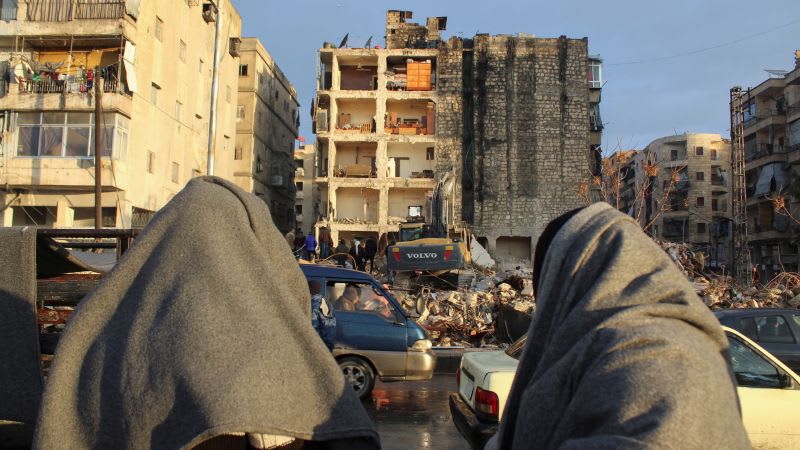
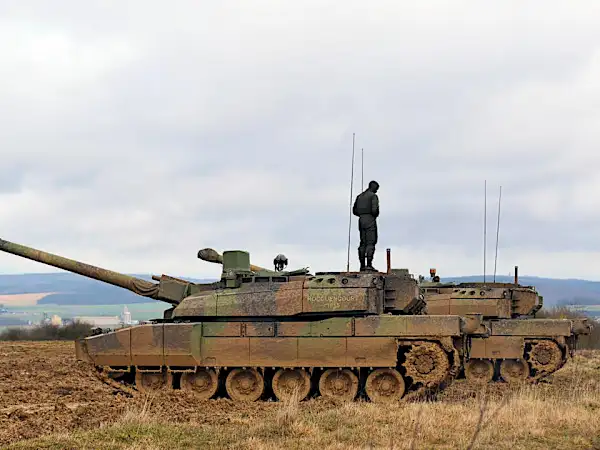



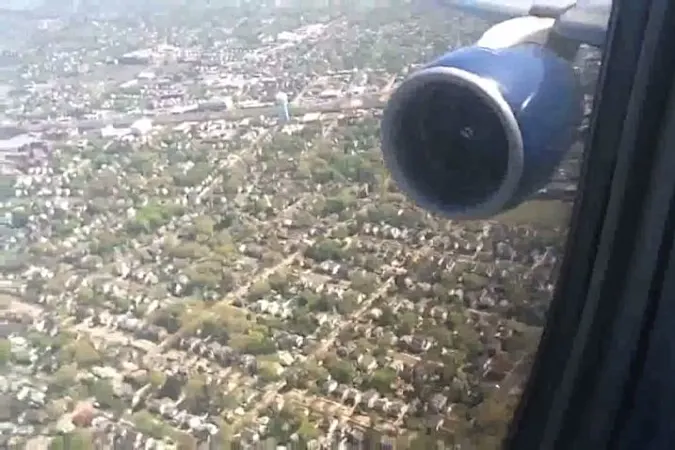
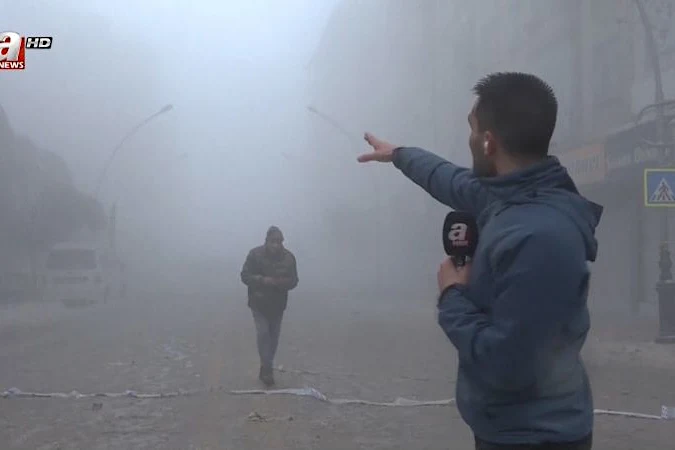
![[Photos] 76ers Cheerleader Surprised On The Court By Her Boyfriend After 1 Year Apart [Photos] 76ers Cheerleader Surprised On The Court By Her Boyfriend After 1 Year Apart](https://images.outbrainimg.com/transform/v3/eyJpdSI6ImQxZGU4ODdmZDUxZWRkZTcyNWFiODc3MGVmMmY0M2ViOWQ4MDMxNmQwMjI3NTQzMmZiN2E0ZjFjNmFjNzJmNjEiLCJ3Ijo0NTAsImgiOjMwMCwiZCI6MS41LCJjcyI6MCwiZiI6NH0.webp)

![[Gallery] This Jet Always Tailgates Air Force One, Here’s Why [Gallery] This Jet Always Tailgates Air Force One, Here’s Why](https://images.outbrainimg.com/transform/v3/eyJpdSI6IjA0N2JkMWNlOTQ0ZmMwNTQ4YjU3YWRkMjRjODhkY2Y0ZmQxMDM3ZmEwMjIxODM5MjNhODY0OTVjNzM2OTUwMzgiLCJ3Ijo0NTAsImgiOjMwMCwiZCI6MS41LCJjcyI6MCwiZiI6NH0.webp)


![[Pics] Expert Says Soviets Left An Astronaut In Space After A Disaster, Then Covered It Up For Years [Pics] Expert Says Soviets Left An Astronaut In Space After A Disaster, Then Covered It Up For Years](https://images.outbrainimg.com/transform/v3/eyJpdSI6ImExZGRiYmNiNzRlMGY3NTI4YjY3NDA0NjQwNTE4ODI0NDY2ZGExZDkwMWMzN2VjYzU4NTNiMTg3OTdkZjQ2MTkiLCJ3Ijo0NTAsImgiOjMwMCwiZCI6MS41LCJjcyI6MCwiZiI6NH0.webp)
![[Pics] Schwarzenegger Cuts His Son From Financial Support [Pics] Schwarzenegger Cuts His Son From Financial Support](https://images.outbrainimg.com/transform/v3/eyJpdSI6IjdmZTkzOWZlNTE3NDM1NDk0OWQyMTQ0NzM1MjU0ZTE5NmYzZmU5MWQ0MzZmYmQ2ODlmYzNhZThiZjIxYzc0MGEiLCJ3Ijo0NTAsImgiOjMwMCwiZCI6MS41LCJjcyI6MCwiZiI6NH0.webp)

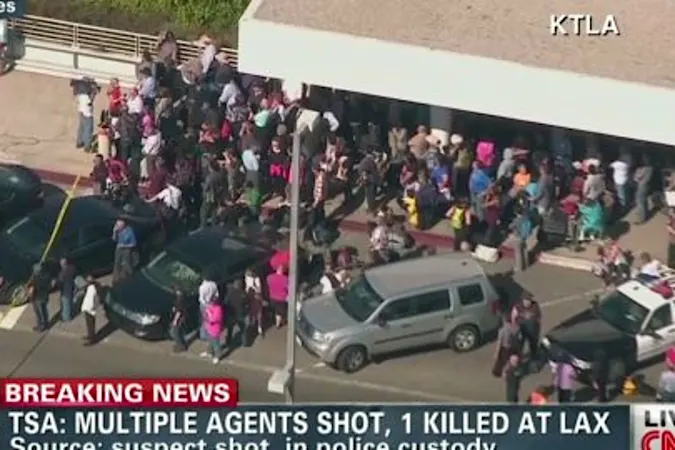
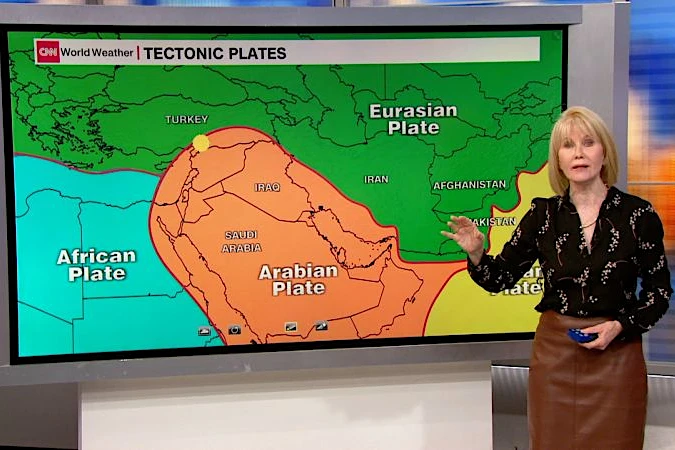


![[Photos] Boy Finds Tank Buried In Mud, Opens Hatch And Realizes What Army Has Done [Photos] Boy Finds Tank Buried In Mud, Opens Hatch And Realizes What Army Has Done](https://images.outbrainimg.com/transform/v3/eyJpdSI6ImFmYzg4M2NhYjUwZmJmNTY5NGU0MWY5NmU0NTYyZDRiZjEzNTMxOWE3ZDNjOTg3Njc4ZGIzOTE3YmE5NTllNzEiLCJ3Ijo0NTAsImgiOjMwMCwiZCI6MS41LCJjcyI6MCwiZiI6NH0.webp)
